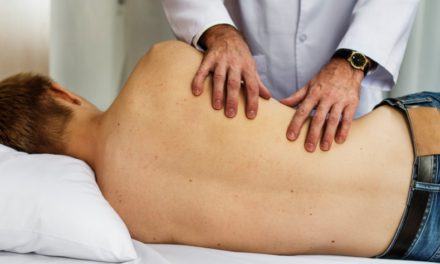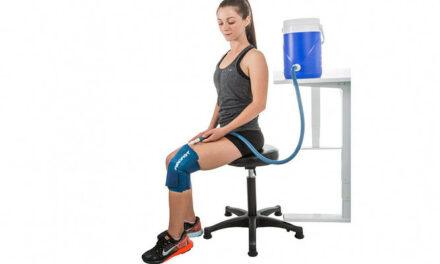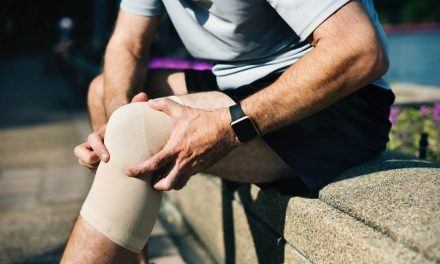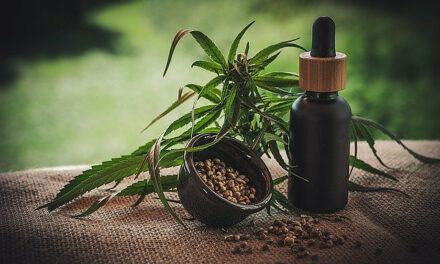“Argh! Why do my muscles feel achy? ” – “We think we know, right?” We often go through and struggle with such times.
Muscle aches, one of the most common body aches, are none of us can hardly avoid. They are something that more or less almost every one of us has to deal with it. And, some of us sometimes have to deal with muscle aches on a day-to-day basis.
Muscle aches are usually harmless, but it is helpful to understand what causes them and if we need to seek medical attention.
They differ in intensity and frequency. An individual may describe a muscle pain as severe, periodic pains or dull but persistent aches.
Muscle pains often occur due to tension, overuse, or muscle injury from exercise or hard physical work. The aching tends to involve specific muscles and starts during or just after the activity. It is often evident which activity is causing pain.
While the main question we are about to answer is ‘what causes Muscle aches when sick?’, before explaining that, let’s explore the sicknesses that can cause muscle aches.
Which Sicknesses Cause Muscle Aches?
In general, the most common sickness that prevails in a person with symptoms of muscle aches is Fibromyalgia. Oh wait, you must be now thinking, is this some sort of chronic disease? The answer to your question is yes. It is rather a chronic syndrome which causes mental stress and muscle aches.
Now, if you ask me if this is some sort of life-threatening disease. Then, the answer is ‘no, it is not!’. It is often connected with widespread pain in the bones and muscles, general fatigue
and areas of sore.
Some of the other most common causes of muscle pain are tension, stress, overuse and minor injuries. These types of pain are usually localized (appear at a specific location of the body, for example, leg aches), affecting just a few muscles or a small part of your body.
Systemic muscle ache, ache throughout your whole body is mostly the result of an infection, an illness or a consequence of medication.
Some of the other sicknesses that cause muscle aches could be:
- Infections and viruses,
- Medications,
- Fluid retention (Edema),
- Hypokalemia,
- Stress,
- Dehydration,
- Lack of sleep,
- Pneumonia,
- Chronic fatigue syndrome (CFS),
- Arthritis.
Whoa! These seem to be a hell of a bunch of heavy terms to even understand. No worries I will be explaining every possible term in the easiest going and understandable way to you.
Infections and viruses
Viral or bacterial infections including the flu, the common cold can often cause body aches and muscle pains.
When such infections occur, the immune system sends signals asking white blood cells to fight off the infection. As you might know, White Blood Cells commonly knows WBCs or leukocyte’s job is to defend the body against both infectious disease (caused by bacteria, viruses and fungus) and foreign intruders.
Tip: Is Wart a Fungus or Virus? Follow the link to find out with some valuable tips on how to prevent and treat warts.
Such muscle aches appear as a result of an infection often can result in inflammation. Such infections could leave the body muscles feeling achy and stiff.
Medications
Some medicines and drugs, like statins (used to combat high blood cholesterol and lipids) and blood pressure medications, have side effects that often make the body feel sore, stiff, and achy.
Those who were addicted to alcohol and certain drugs and are in the process of giving up (the addiction) can also have a similar effect.
Fluid Retention
Often when the body retains fluid, swelling and inflammation may develop, causing in general muscular aches and pains. An individual may also experience vibrant, localized aches and cramps.
Tip: Fluid retention is a common symptom of kidney diseases, which could result in pain similar to back pain.
Hypokalemia
When we have a low potassium level in the bloodstream (or hypokalemia), it affects the way nerves and muscles operate, which can result in body aches, weakness, fatigue, and muscle cramps.
Tip: Muscle pain is different from nerve pain, though.
Stress
Stress! This is something undeniable, right? Even if we try avoiding stresses, it seems like stresses do not like leaving us alone.
Stress causes pressure in the body and hence weakens the immune system. This makes the muscles feel stiff, as well as affect the body’s reaction to inflammation and infection.
Tip: Here are our hot tips on how to increase muscle elasticity.
Dehydration
Whenever you feel hurting somewhere or feeling any sorts of pain, you often get to always hear to ‘drink water!’. Staying hydrated is important to keep a person’s body functioning well and keep muscles at ease.
Dehydration often causes a person to feel sick and sore.
Tip: There are a few things you can do when you are accumulating to heat, as we covered in another article.
Lack of sleep
Researches show that People who experience chronic pain often find it hard to fall asleep. The same research has found that people with insomnia usually experience chronic pain.
In studies by National Sleep Foundation’s inaugural Sleep Health Index,
it is found that Forty-five per cent of Americans say that poor or not enough sleep affected their daily productive at least once every week.
And again, 67% of those with less than upright sleep quality also report “poor” or “only fair” health, with 27 % reporting otherwise “good” health. Low life fulfilment and an excessive amount of stress
were also related to sleep quality.
Some of the groups also reported poorer sleep quality were those with an annual income of less than $20,000, Americans between 30 and 64 years old, and those with education levels of high school or less.
With time passing by, not getting enough sleep can lead to tiredness
which ultimately may make the body feel achy, inactive, and heavy.
Insufficient sleep also affects the body’s functioning to repair tissues and cells and affects the immune system to work correctly. When the body does not get enough sleep or passive time to repair and fix, an individual may experience aches and pains more frequently.
[et_bloom_locked optin_id=optin_3][/et_bloom_locked]
Chronic fatigue syndrome (CFS)
In addition to insomnia, exhaustion, and weakness someone with Chronic Fatigue Syndrome (CFS) may experience muscle aches similar way to a person who does not get enough sleep.
CFS is a medical condition of an unknown cause, with illness, aching, and extended tiredness and depression, usually happening after a viral infection.
Arthritis
Joint inflammation often causes arthritis.
Arthritis may result from wear and tear on the body or may be a result of an autoimmune condition causing the immune system to attack the healthy tissues that connect the joints. Body pain and achiness are common symptoms of arthritis.
Other than an above-mentioned medical condition relating to several different muscle and body aches, there are also many various auto-immune disorders.
These include:
- Lupus
It occurs when an individual’s immune system begins to attack perfectly fined tissues, causing inflammation.
- Myositis
Myositis means inflammation in muscles that you use to move your body. This is also of a common reason for muscle aches.
Feeling tired, swelling, and pain are the most common myositis symptoms. Besides another most visible symptom of myositis include fatigue.
Myositis causes include infection, injury, autoimmune conditions, and as a result of drug side effects. Myositis-related muscle weakness usually appears closer to the trunk of your body.
Various other symptoms of myositis include fatigue and a common feeling of being ‘unwell’.
- Multiple sclerosis (MS)
MS is an autoimmune disorder that disturbs the central nervous system. People with such disorders feel body aches and pains because the tissue surrounding their nerve cells has broken down due to persistent inflammation.
Pff! I hope I got to get to understand those little medical diseases concerned with the sicknesses causing muscle pain.
Now, let’s explore the causes of muscle aches when we are sick.
What Causes Muscle Aches When Sick?
Almost everyone has, joints aches, sores, aching muscles at least once every few years if not more often. Muscle pain involves a small area or your whole body, ranging from mild to awful pains.
Delayed onset muscle soreness (DOMS) is a feeling of uneasiness that occurs 1 to 2 days after doing exercise. The soreness has been reported to be the most evident at the muscle or tendon junction initially and then spreading throughout the muscle. The muscle activity, which results in the most soreness and injury to the muscle is an ‘eccentric’ activity.
Although most muscle aches and pains drive away on their own within a short time, sometimes muscle pain can stay for months.
Remember, muscle aches can develop at anywhere in your body, but commonly comprising your neck, back, legs, and even your hands.
The most prevalent causes of muscle pain are:
tension,
stress,
pressure,
overuse and minor injuries. This type of pain is often localized, upsetting just a few muscles or a minor part of your body.
Again, the most common causes could also be the flu, the common cold, and other viral or bacterial infections that can cause muscle pains. While such diseases happen, the immune system guides white blood cells to battle off the infection resulting in inflammation, which can leave the muscles in the body feeling achy and stiff.
The other causes can also relate some of our unusual ways of leading lifelike as mentioned earlier, not having to get enough sleep, not staying hydrated, lack of proper amount of potassium, and so on.
Which Muscles Most Likely to Ache When Sick?
You can often not point out which muscles are most likely to ache more when you are sick. It basically depends on the kind of sickness you experience/d and the circumstances based on your daily activities.
From my experience and based on research studies, I though find that muscular back pain to be the most prevailing issue among the people worldwide. Back pain is one of the very common reasons people go to the doctor or miss work, and it is a primary cause of disability worldwide.
Most people experienced back pain at least once. It is most often caused by a muscular injury of some kind like a muscle strain or a ligament sprain, most often such injuries result from improper lifting being overweight or bad posture. Sometimes pain from a muscular strain or a ligament sprain will hurt immediately, but this isn’t always the case pain can come on gradually after a while has elapsed.
Muscular back pain is common because there are dozens of muscles ligaments and tendons helping to keep the back stable your back consists of 30 separate bones called vertebrae that must be held together with muscles ligaments and tendons.
Connected to strength and movement, the lower back carries most of your weight. Studies
Reveal that up to 85 per cent of adults in the United States suffer muscular back pain at some time during their lives muscular back pain.
Saying so, upper back pain is not uncommon.
Luckily, you can take action to prevent or release most back pain
affairs. If prevention fails, simple home remedies for back pain and appropriate body mechanics will often heal your back within a few weeks and keep it functional.
Surgery is rarely suggested or needed to treat back pain.
Why do Flu and Cold Cause Muscle Pain?
I am sure you are familiar with flu and cold and other viral or bacterial infections causing muscle aches, right? Yes, this is a very common thing to happen when you are fighting with such infection; however, chances are you’ll also get some of the following symptoms:
fever,
headaches,
runny nose,
sore throat,
muscle aches, and so on.
Tip: Fever could cause hallucinations in some people. And, in some people headache can appear as neck pain.
The thing is you get fevers and headaches as your hypothalamus at that time raises your temperature
to make viruses less comfortable, and heat causes dilation of vessels in your brain adding pressure, which is a headache.
You also get running noses when your nose is pushing mucus-like crazy to wash pathogens away from your body
You are prone to the sore throat because the back of the throat is popular for infectious colonies, and when that happens, immune cells rush into the area, inflaming it and causing pain.
Phew! So much is happening there. Even if you didn’t understand a thing then no worries because basically most of your symptoms aren’t concerned with your flu, but the immune responses to your flu whereas in case of muscle pains are also the same.
Now, if you are to blame your immune system and wonder damn, my immune system is causing all these troubles, and then you are not alone.
We all humans right there with you. The immune system is the last line of defense to help us to survive, so it doesn’t do half of the measures. It’s just pow! Just gets at it.
Anyway, you probably have guessed by now that muscle aches are thanks to the immune system too, but in a much ‘cooler’ way.
Muscle aches are known as myalgia, and in studies as many as 94% of the people with flu get them. The immune system contains a variety of cells but when it comes to myalgic issues to keep things simple let’s just say your immune system corners some virus in the muscle thing and helps us to prevent infecting other cells.
[et_bloom_locked optin_id=optin_3][/et_bloom_locked]
How Long Do Body Aches Last with a Cold, Flu and Other Sicknesses?
Sometimes you wake up, coughing, and have that aching, feverish, ‘cannot move a muscle’ feeling, however, does one recognize whether or not you’ve got cold symptoms or the flu?
It is necessary to know the difference amid flu and cold symptoms.
A cold is a minor respiratory illness than the flu.
Cold symptoms will cause you to feel sick for a few days, while flu will cause you to feel quite ill for a few days to weeks. The flu may also end in serious health issues like respiratory diseases like pneumonia, where a hospitalization might be necessary.
How Do You Get Rid of Body Aches When Sick?
Body aches may occur for many different minor or severe reasons. Most are easily treatable at home by us and relatively harmless, but sometimes body aches can be due to more serious medical conditions. In such a situation, you must consult a doctor and act accordingly.
Finding the best option for body ache relief is to find out the causes of your pain. That means identifying exactly which muscle is causing the body to ache.
Many medical terms like tendinitis, bursitis, and ligaments strain and so on may feel like muscle pain, and it is not easy to find out exactly what causes such pain. In such a situation, all we can think of relief. So, we can go for some of the home treatments by ourselves unless or until it looks like severe or lasts long.
The following will help you to get rid of body aches quicker and to recover faster.
- Regulate your temperature
It may include reducing fever, maintaining warmth, or remaining cool to ease shivering and prevent the muscles from seizing up.
- Rest
Resting allows the area of the body where you’re experiencing aches and pains to repair and recover.
- Take an over-the-counter pain reliever or medications
Tablets such as ibuprofen (Advil) or Non-steroidal anti-inflammatory drugs (NSAIDs) can reduce pain and inflammation. Even so, it is always a better choice to ask your doctor before taking any medicine.
- Drink plenty of water
Drinking more and more water or fluids and staying hydrated can help ease achiness caused by dehydration.
- Have a warm bath (if no fever)
Having a warm bath or applying warm water sponge on to the aching portion (of your body) can help relax muscles and ease tension in the body.
- Apply ice to the affected area
You should try using ice for 1 to 2 days following muscle pains that occurred due to the strain or sprain to help relieve pain and reduce inflammation.
- Stretch
Gently stretching the muscles can also often come in handy.
- Avoid high-impact activities
Avoid lifting any heavy materials or high-impact tasks until after the muscle pain goes away.
- Exercise and healthy maintenance
Doing stress-relieving activities and less extreme stretching exercises such as yoga and meditation to relieve tension and put some ease into your body.
Last but not least, you should always try maintaining a healthy diet. You can always go for a healthy diet chart from your consultant depending on any other medical conditions you may have.
Tip: Here are our diabetes-friendly food list anyone can stick with.
[et_bloom_locked optin_id=optin_3][/et_bloom_locked]
Summary
Muscle pain in most people resolves on their own without any medical treatments. Because of the spontaneous resolution, it has been challenging to determine the real effectiveness of medications.
To date, the majority of medicines used to treat muscle aches have low efficacy (arguably), and even their therapeutic action is unpredictable. What cures one person may not be applicable in another person.
In later years although the body starts to lose functionality and flexibility to maintain proper metabolism due to loss of muscle physique and degenerative agents in the bones and joints, these belongings can be aided and countered by a healthy and safe exercise routine.
There are several ways to appreciate the physical activity, and if done the accurate way, you’ll be able to experience the benefits for years to come.
Tip: While Alpha-Stim and TENS could help with muscle pains, Electrical muscle stimulation (EMS) is the go-to technology to ease muscle inflammation.









0 Comments